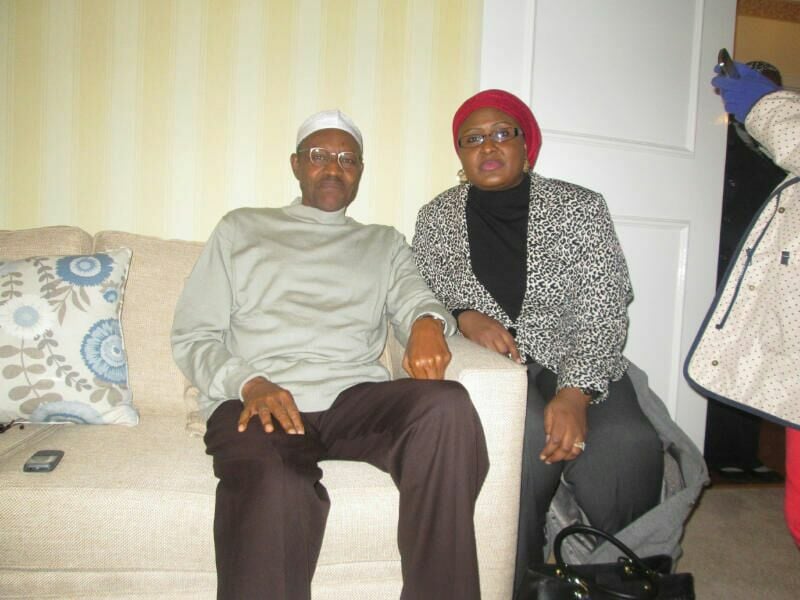President Buhari waving to Nigerians that came to meet him at the groundbreaking ceremony. Cross River.
A major concept in economics is the concept of wants and needs. Human challenge springs from inability to identify what the difference between wants and needs are. Until a balance is created between human wants and needs, the situation may never be different from what a bird goes through when it perches on a rope. Nigerians are in trouble today just because of our inability to create this balance. This balance is required if we expect any change, no matter how badly we crave for one.
Nigerians say they want a better leadership. They also want good roads, health facility, constant electricity supply, affordable homes, security, quality education and great human capital which can drive the change we want. For decades, these are desires of an average Nigerian.
No reasonable human being will hate these desires but beyond the wish, many of these items are not delivered on platter of gold. When I watched the March against guns organized by teenagers in the United States, I called the attention of our daughter to this and asked if her generation ever considered doing this in Nigeria. Non violent protest calling for changes. Our daughter’s reply was what has you adult done in this regard? I could not but felt a little bit of shame even though I did not betray my emotion.
My conclusion about the wants of Nigerians is that we do not properly understand the economic concept of wants and needs. When we get into the nitty-gritty of the concept, it can really be difficult. Economist like James Yeo had defined wants and needs as unfulfilled desire that motivate human behaviour. The satisfaction of these unfulfilled desires usually improve human well-being. This definition may be lopsided but there is an element of truth in it.
Advertisement
On the surface, a want is a desirable thing which does not affect our survival.A need is at the core of human survival. Needs speak volume about what human needs to survive or exist here on earth. In other words, wants are desirable things which make life more enjoyable. Wants as desire may or may not be obtainable. Needs must be melt to be alive. Until life exists, one cannot think of an enjoyable life. Without basic needs, life may cease to exist.
Adam Smith, father of modern economics, had postulated most economics issues can only be resolved by invisible hand. This invisible hand, the market force, manifests when buyers and sellers negotiate prices and seek their own self-interests. Through this, consumers do have a power of a choice of rewarding great producers by buying their goods or chasing away unreasonable others.Unreasonable or tactless producers learn their lessons when they are forced out of market.
With the interplay of market forces and at the point where consumers properly understand what the difference between a want and need means, the consumers (electorates) do know their active involvement in negotiating their interest will bring them health, happiness and well-being. The people at this junction also know if they become docile in the operations of the market forces in a free market of democracy, their needs may become wants.
Advertisement
In democracy, it has been said minority(producers) will have their say and majority (electorates) will have their way. In the case of Nigeria, and possibly in other developing countries, the minority (people in power or unreasonable producers) had learned the act of manipulation so well the buyers do not realise they should be active players in the market forces of democracy.
The buyers had remained docile and weak. They lack information or had refused to create a balance between what they think is just a desire and a need. The electorates continue to wish for a better day, year in year out. While opportunity presents itself every four years, in the case of Nigeria, electorates continue to sleepwalk and hope their desire will be met one day.
Nigeria’s electorate do not realise they have the power of choice and right to demand accountability from their elected officials. Nigerians will rather argue and fight over irrelevant issues. Our unreasonable producers of goods (government and elected officials) who continually draw from our common resources had perfected their acts and arts. They give us something to engage ourselves with while they continue to populate and pollute the market space with bad products. We keep buying the substandard products either in error or intentionally. We never learn our lessons nor refuse to accept bad products.
When great and effective products are offered, we never appreciate or demand a reinforcement of such values. The few officials who try to produce such products are never given award for job well done. Our needs are perpetually in the plateau of wants because the invisible hand of market forces is solely dominated and dictated by the few self seeking minority. The electorates or the consumers of goods had suspended their own wills.
Advertisement
Until Nigerians see the true picture with regards to what they call wants are actually basic needs, their corporate survival may be at stake. It is at this level of knowing they can initiate a process of bringing these needs into life. It is at this level average Nigerian will become active participants in the free invisible hand, market of democracy. If we do not know this we may continue to die one by one.
How do we become active participants in this free market? Information is key. What do we know about democracy and how much of our rights do we know? How can we make a choice of not patronising bad products and services? How do we send a bad producer out of the market without guns or fire arms?
One strong power we have is the power to vote. How do we vote if we have no voters’ card? Do we do our due diligence on the individuals presented to us by the party? Do we make an informed choice of voting individuals we know with capacity, competency and character? Do we ask question or demand accountability when the mistake of voting wrong individuals into office had been made? These are some of the ways we will know if we are ready to move our so called wants into the realm of needs where they actually belong.
Advertisement







